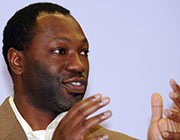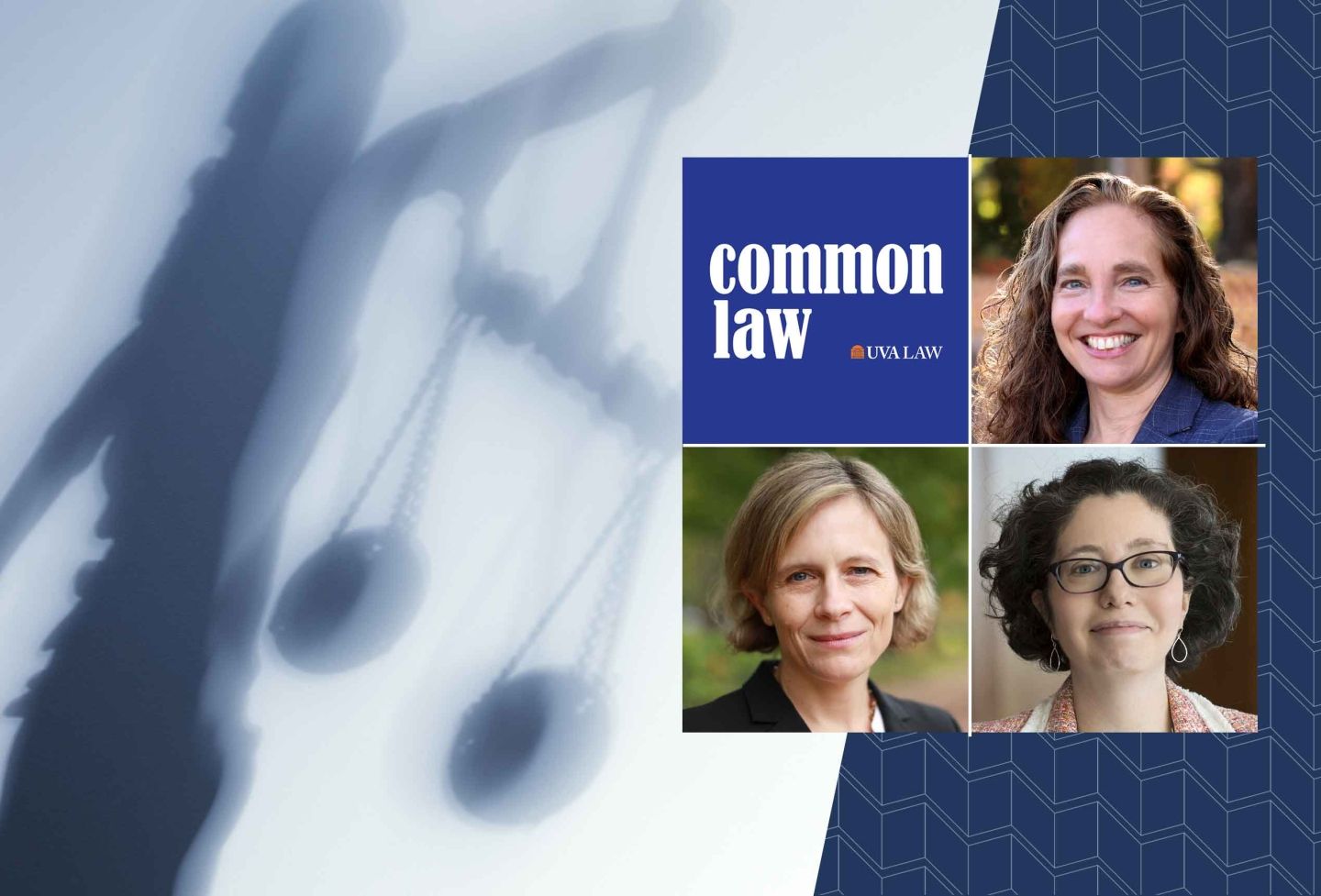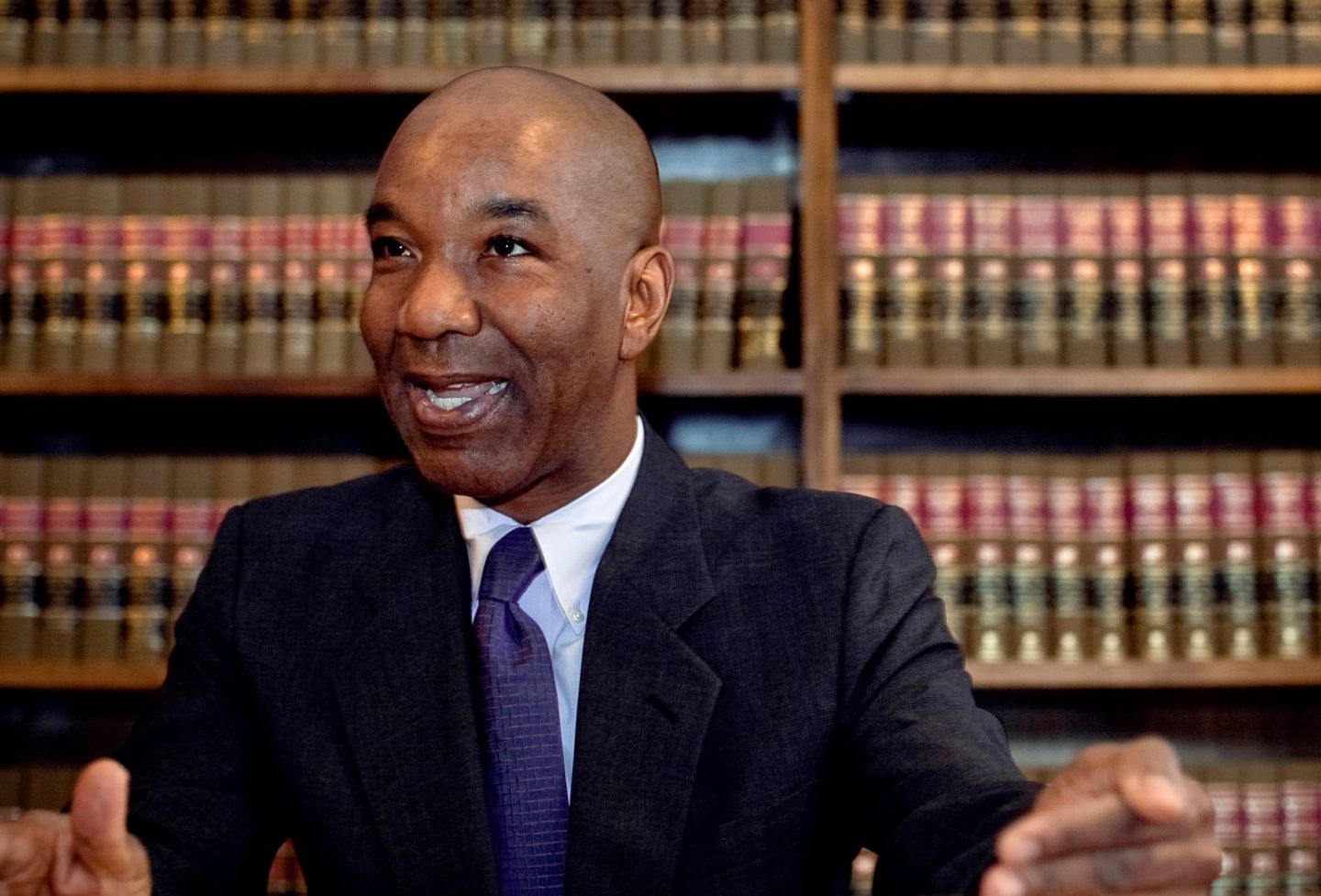Election May Affect African-American Identity, Scholar Says
The election of the country's first black president could have dramatic implications for the identity of African Americans, visiting Law School professor Guy-Uriel Charles said Thursday at a Center for the Study of Race and Law event.
 Charles, the Russell M. and Elizabeth M. Bennett Professor of Law at the University of Minnesota Law School, said Barack Obama’s victory could lead African Americans to form an even stronger and more cohesive racial identity, or could cause the group to faction into units that identify around commonalities like socioeconomic status instead of race.
Charles, the Russell M. and Elizabeth M. Bennett Professor of Law at the University of Minnesota Law School, said Barack Obama’s victory could lead African Americans to form an even stronger and more cohesive racial identity, or could cause the group to faction into units that identify around commonalities like socioeconomic status instead of race.
Charles said Obama owes many of his votes to people of color, including blacks, Asians and Latinos. He cited exit polls that showed that 43 percent of whites voted for Obama, while 95 percent of blacks, 67 percent of Latinos, and 62 percent of Asians supported him.
“Obama’s presidency was not the result of the fact that a majority of whites voted for him, but the fact that a coalition of voters of color [cast their vote] in a lot of respects around this issue of racial consciousness,” Charles said.
Charles used the term “linked fate” to describe African Americans’ tendency to choose candidates by considering what would be the best for a group, rather than what is best for the individual. That group consciousness, Charles said, could be challenged by Obama’s election. Suddenly, he said, a group of Americans who always felt a sense of “otherness,” are now capable of not just following, but of leading.
“With the election of Barack Obama, the question becomes, ‘Does [Barack Obama’s election] symbolize the full inclusion of black Americans into American society?’ If you think through Aristotle and Plato’s conception of citizenship, one conception of what it means to be a full and equal citizen is not simply someone who is ruled, but someone who is capable of being a ruler,” Charles said.
Now that Obama has tread into new territory, Charles said African Americans may not feel as much of a need to band together as part of a larger racial group.
Conversely, Charles said it’s possible for African Americans to form an even stronger racial identity because of Obama’s election, especially if the group does not feel it is reaping benefits from his presidency.
Charles said rampant inequalities are still evident when African Americans are compared with whites, and many African Americans will expect Obama to address those inequalities.
“So if there isn’t any public policy directed at addressing those issues and those problems … it might be the case that African Americans say, ‘Wait a minute. We’ve seen no benefits from this process,’ and instead of seeing a decrease in group identity, you might see an increase in the group identity that is focused on the existing, if not growing, racial inequality across all spectrums,” he said.
This can be exacerbated, Charles said, by some white Americans’ perception that Obama’s election proves that racial inequality no longer exists.
“I’ve talked to a number of white American friends where people have said statements like, ‘I’m voting for Obama in part because I want to take the race issue off the table. No longer is this question of white racial guilt and black racial grievance a legitimate question to be addressed,’” Charles said. “If this is true that it’s viewed as taking the racial issue off the table, and you have significant racial inequality that black Americans find intolerable, then you have the possibility of further conflict that might result in greater racial identity or further racial separateness.”
Founded in 1819, the University of Virginia School of Law is the second-oldest continuously operating law school in the nation. Consistently ranked among the top law schools, Virginia is a world-renowned training ground for distinguished lawyers and public servants, instilling in them a commitment to leadership, integrity and community service.


